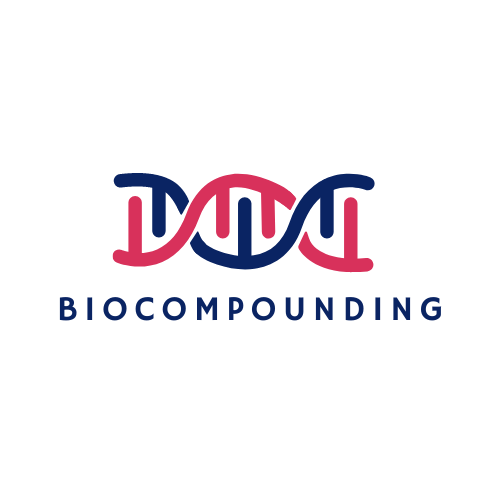An Overview of CAR-T Cell Therapy And a New Manufacturing Method

Cancer is a prominent cause of death globally, which accounted for nearly 10 million fatalities in 2020.
There are different types of cancer therapies and the choice of treatment depends on factors such as the type and the stage of the cancer and the patient’s overall health. Common types of cancer therapy include surgery, radiation, chemotherapy, immunotherapy, and stem cell transplant, just to name a few.
What is immunotherapy?
Immunotherapy is a therapeutic modality that exploits your body's natural defenses - the immune system to fight against diseases, in this case, cancer.
It works by boosting or training your immune system to recognize and destroy cancer cells. As such, Immunotherapy allows your body to fight the cancer itself and improve your chances of recovery. Examples of immunotherapy include monoclonal antibodies, immune checkpoint inhibitors, cancer vaccines, adoptive cell transfer, and cytokines. You can read more about some of these therapeutic modalities in our previous - Exploring Drug Modalities: Small Molecules, Biologics, RNA, Cell & Gene Therapy
In this article, we will focus on Chimeric Antigen Receptor (CAR) -T cell therapy. A type of adoptive cell transfer that involves removing immune cells, such as T cells, from a patient, modifying them to enhance their anti-cancer activity, and then reintroducing them into the patient's body. This approach allows for a more targeted and potent immune response against cancer cells, thereby allowing the body to fight it better.
Engineering Patients’ Immune Cells to Treat Their Cancers
CAR-T cell therapy is an innovative form of immunotherapy that has shown promising results in the treatment of certain types of cancer, particularly blood cancers like leukemia and lymphoma.
So far, the Food and Drug Administration (FDA) has approved six CAR T-cell therapies:
- Kymriah: Developed by Novartis (SWX: NOV), Kymriah was the first CAR-T cell therapy to receive FDA approval. It is approved for the treatment of certain types of pediatric and young adult acute lymphoblastic leukemia (ALL), as well as adult patients with relapsed or refractory large B-cell lymphoma.
- Yescarta: Developed by Kite Pharma (a subsidiary of Gilead Sciences - NASDAQ: GILD), Yescarta is approved for the treatment of adult patients with relapsed or refractory large B-cell lymphoma after two or more lines of systemic therapy.
- Tecartus: Also developed by Kite Pharma (a subsidiary of Gilead Sciences - NASDAQ: GILD), Tecartus is approved for the treatment of adult patients with relapsed or refractory mantle cell lymphoma (MCL). It is specifically indicated for patients who have received at least one prior therapy.
- Abecma: Developed by Bristol Myers Squibb (NYSE: BMY) and Bluebird Bio (NASDAQ: BLUE). It received FDA approval in March 2021 for the treatment of adult patients with relapsed or refractory multiple myeloma, a type of blood cancer. Abecma is specifically indicated for patients who have received at least four prior lines of therapy, including an immunomodulatory agent, a proteasome inhibitor, and an anti-CD38 antibody. It is the first CAR-T cell therapy approved for multiple myeloma.
- Breyanzi: Developed by Bristol Myers Squibb (NYSE: BMY). It received FDA approval in February 2021 for the treatment of adult patients with relapsed or refractory large B-cell lymphoma, including diffuse large B-cell lymphoma (DLBCL) not otherwise specified, high-grade B-cell lymphoma, and DLBCL arising from follicular lymphoma.
- Carvykti: Developed by Janssen, wholly owned by Johnson & Johnson (NYSE: JNJ). It is the latest FDA-approved CAR-T therapy. It is indicated for patients with relapsed/refractory multiple myeloma after four prior lines of therapy.
One common theme you will notice from all the approvals is that they all treat blood cancers or what is called “liquid cancers”.
The term "liquid cancer" refers to cancers that start in the blood or bone marrow, such as leukemia, lymphoma, and myeloma. These cancers are called "liquid" because the cancer cells are found in the blood or bone marrow, which are both liquid.
There are several reasons why liquid cancers are difficult to treat. First, the cancer cells are constantly circulating throughout the body, making it difficult to target them with radiation or surgery. Second, liquid cancers often spread rapidly, making it difficult to catch them early. Third, liquid cancers are often resistant to traditional chemotherapy drugs. These various reasons make T-cell therapy an almost “ideal” modality to treat liquid cancers:
1) T cells can target cancer cells throughout the body, even if they have spread to other parts of the body. This is because T cells circulate throughout the body, searching for and destroying cells that are infected with viruses or that have become cancerous.
2) T-cell therapy can be effective even if cancer cells have become resistant to other treatments. This is because T cells can recognize and attack cancer cells that are expressing specific proteins, even if these proteins are not present on healthy cells.
3) T-cell therapy is generally well-tolerated by patients. This is because T cells are a part of the body's immune system, and they are not typically harmful to healthy cells.
In recent years, there has been a growing focus on developing new treatments for liquid cancers. Some of the most promising new treatments include immunotherapy, targeted therapy, and gene therapy. You can read about gene therapy in our previous post - Exploring Drug Modalities: Small Molecules, Biologics, RNA, Cell & Gene Therapy
Overall, T-cell therapy is a promising new treatment for liquid cancers. It has the potential to offer long-term remission or cure for patients with these difficult-to-treat diseases. So, let’s have a look at how it works.
